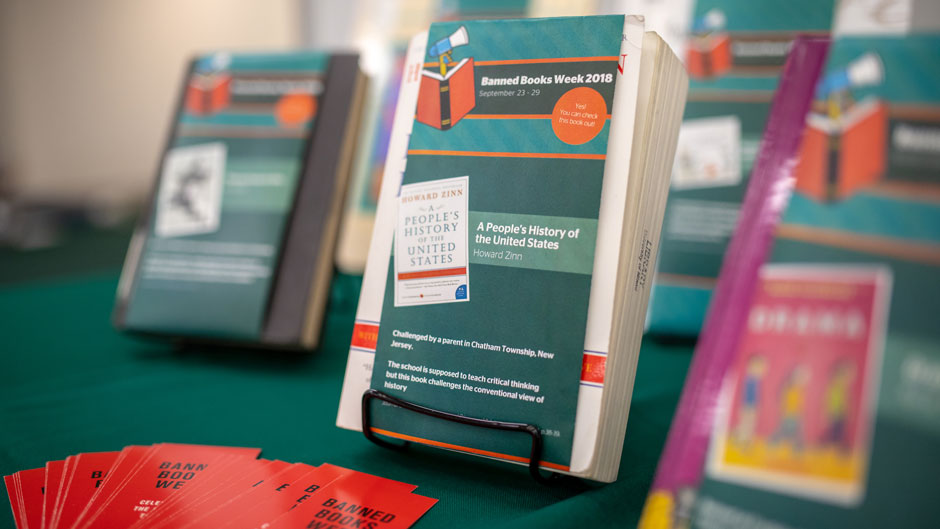When most people think of banned books, images of the bonfires made by Nazi soldiers come to mind. For Adolf Hitler and his supporters, anything that smacked of “anti-German” sentiment was suspect. More than 4,000 books were banned and burned in Nazi Germany between 1933 and 1945.
What may surprise many is that in the United States, everyone’s favorite wizard Harry Potter has been banned from libraries by many churches, community groups and individuals claiming the series by English author J.K. Rowling promotes witchcraft and sorcery. Other writers banned in the U.S. include Nobel Prize winner Toni Morrison, suspense writer Stephen King and Judy Blume, the children’s writer.
In 2006, a children’s book, Vamos a Cuba, was banned from the Miami-Dade County Public Schools libraries when a parent objected, saying it contained deceptive information about the island.
To raise awareness to the censorship of books, the University of Miami Libraries will participate in national Banned Books Week, starting on Sept. 24. At 2 p.m. on Tuesday, Sept. 25, a “Read Out” panel will be held in the Learning Commons of the Otto G. Richter Library, on the University’s Coral Gables campus.
The event participants will read from books that have been banned in the U.S., said Lauren Fralinger, Learning and Research Services librarian for UM Libraries and one of the main organizers. A cabinet with banned books—including Beloved by Morrison and To Kill a Mockingbird by Harper Lee—will be displayed in the area.
“When people think of books being banned they think it happens in other countries or a long time ago,” Fralinger said. “It happens here and it happens all the time.”
That is why it is important to highlight the issue, she said.
“This week we are celebrating the freedom to read,” said Kelly Miller, associate dean of Learning and Research Services. “We hope to raise awareness about attempts to limit that freedom. And we hope to bring attention to voices that have been silenced because of these attempts.”
One of those voices is that of Samantha Phillips, a senior lecturer of English Composition at the College of Arts and Sciences, who will read from a book she co-authored, Real Girl, Real World. A parent in New Jersey challenged her book. The book explores issues of body image, emerging sexuality and feminism in teenage girls based on interviews of more than 70 girls.
“The judge denied the challenge but someone wanted to control what teenagers had available to read in the library,” said Phillips. “We had been very careful in researching and writing the book and we felt that is exactly what teenagers needed.”
Fortunately, the First Amendment protects Americans from an outright banning of books by the U.S. government, but each year many books are “challenged” and taken to court to prevent schools or libraries from carrying the titles. Most books are challenged because of sexual content, offensive language or because the content is deemed unsuitable for the age group.
The American Libraries Association is at the forefront of freedom of expression and promotes Banned Books Week nationally.
“Libraries are sites—both physical and digital—for the free and open exchange of knowledge and information,” said Miller. “Americans love expressing themselves. And that some of our most influential works of literature, music, and art are precisely those that have challenged us to see the world from someone else’s point of view. I believe that encountering such works helps us to grow and become more kind and understanding.”
Other participants who will read from banned books are: Jacqueline Galante, a graduate student of Liberal Studies in the College of Arts and Sciences; Saghar Leslie Naghib, lecturer, Intensive English Program, Division of Continuing and International Education; and Roxane Pickens, assistant director of the Learning Commons, UM Libraries. The “Read Out” event is free and open to the public.
Throughout the week, there will also be a selection on view of banned and challenged music at the Marta and Austin Weeks Music Library. The Library’s entrance will feature works by Beyoncé, John Lennon, Madonna, Queen, and Rage Against the Machine.
Do we ban books in the United States? The answer may surprise you.

